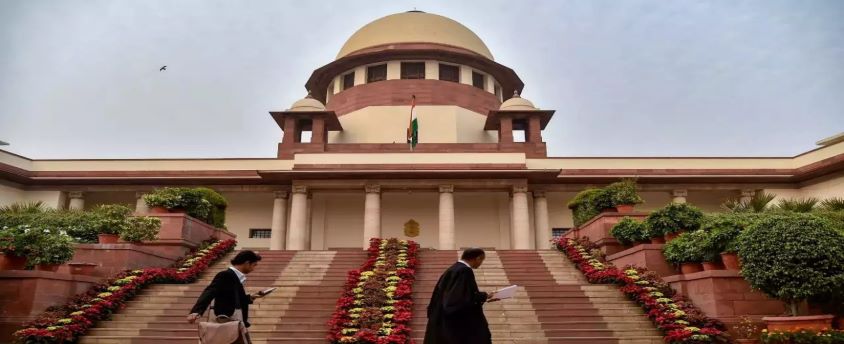Supreme Court on banned outfits
27, Mar 2023

Prelims level : Governance
Mains level : GS-III Role of External State & Non-State Actors in Creating Challenges to Internal Security
Why in News?
- A three-judge Bench of the Supreme Court on March 24, 2023, clarified that mere membership of an unlawful outfit is an offence under the Unlawful Activities (Prevention) Act (UAPA).
- With this judgement, the Supreme Court has set aside a series of its own judgments which had concluded that “mere membership” — unlike “active membership” — of an unlawful association or organisation did not make a person criminal or a terrorist.
- The court was examining three of its judgments delivered in 2011 — State of Kerala vs Raneef; Arup Bhuyan vs Union of India; and Indra Das vs State of Assam.
- On February 3, 2011, the court acquitted suspected ULFA member Arup Bhuyan, who was held guilty by a TADA court on the basis of his alleged confessional statement, and said mere membership of a banned organisation will not make a person a criminal. Similar views were taken by the court in the two other verdicts.
- The Union government and Assam had appealed against the ruling in the Arup Bhuyan case, following which a two-judge bench referred the matter to a larger bench in 2014.
Supreme Court judgement:
- The Supreme Court clarified that a person who “is or continues to be” even a “mere member” of a banned organisation is liable to be found criminally liable under the UAPA for acting against the sovereignty and integrity of India.
- The judgement referred to Section 10(a)(i) of the UAPA which deals with membership in an unlawful association.
- The provision says that “where an association is declared unlawful by a notification issued under Section 3 which has become effective under sub-section (3) of that section, —(a) a person, who — (i) is and continues to be a member of such association shall be punishable with imprisonment for a term which may extend to two years, and shall also be liable to fine”.
- Under Section 3 of the UAPA, the Union government must openly notify the public when an organisation or association has been declared unlawful. The court reasoned that this logically implies that every member of the organisation would be aware of the ban.
- But a person choosing to continue as a member despite knowing about the ban is acting against the sovereignty of the nation, the court noted.
- The court also clarified that persons who had left the organisation and were not members at the time it was declared unlawful, cannot be held liable under Section 10(a)(i) of the UAPA.
Reasonable restrictions of Fundamental Rights:
- The court referred to Article 19(4), which mandated that the citizens’ right to form unions or associations was subject to the power of the state to make laws to impose “reasonable restrictions” in the interests of the sovereignty and integrity of India or public order or morality.
- The Bench also disagreed with the previous benches relying on certain decisions of the US Supreme Court and pointed out that there are differences in the laws of the two countries.
- Unlike the US, the right to freedom of speech in India is not an absolute right and is subject to reasonable restrictions, and the Constitution permits Parliament to frame the laws taking into consideration the public order and/or the sovereignty of India.






